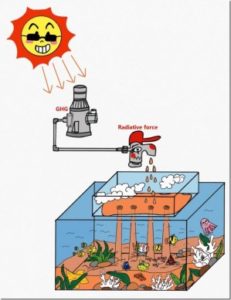by Institute of Atmospheric Physics, Chinese Academy of Sciences, October 10, 2019 in WUWT
As a result of industrialization, the carbon dioxide in the Earth’s atmosphere has increased continuously over the past 100 years, which is considered as the main reason behind global warming. However, the observational global mean atmospheric temperature leveled off over the first decade of the 21st century, in contrast to the rapid warming during the late 20th century. This phenomenon, known as the “atmospheric warming slowdown” or “global warming hiatus”, has attracted great attention worldwide owing to its ostensible contradiction of the human-induced global warming theory.
The changes in ocean heat content might have a tight relationship with the atmospheric warming slowdown. Dr Changyu Li, Prof. Jianping Huang and their colleagues, a group of researchers from the Key Laboratory for Semi-Arid Climate Change of the Ministry of Education, College of Atmospheric Sciences, Lanzhou University, have had their findings published in Advances of Atmospheric Sciences.
In their paper, they explore the energy redistribution between the atmosphere and ocean at different latitudes and depths by using observational data as well as simulations of a coupled atmosphere-ocean box model.
…


